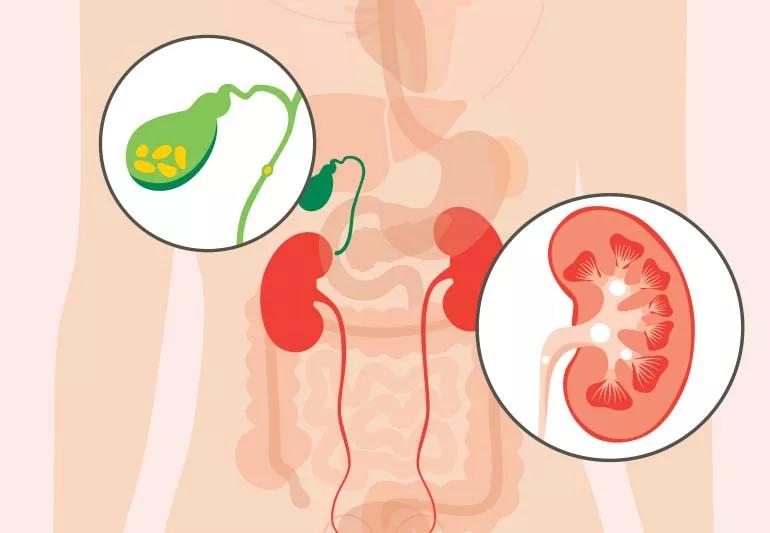Understanding the Distinctions In Between Kidney Stones vs UTI: Trick Symptoms and Treatments
Understanding the Distinctions In Between Kidney Stones vs UTI: Trick Symptoms and Treatments
Blog Article
Comprehending the Trick Distinctions Between Kidney Stones and Urinary System System Infections: An Extensive Summary for Patients
Comprehending the differences between kidney stones and urinary system infections (UTIs) is necessary for individuals that might be experiencing comparable signs yet deal with vastly various wellness challenges. As we explore these vital elements, it comes to be clear that acknowledging the unique features of each problem can greatly affect patient outcomes.
Summary of Kidney Stones
The formation of kidney stones, a commonly devastating and agonizing condition, emphasizes the critical significance of maintaining kidney health and wellness. The primary kinds of kidney stones consist of calcium oxalate, calcium phosphate, uric acid, struvite, and cystine stones, each with distinctive reasons and danger aspects.
A number of factors add to the formation of kidney stones. Dehydration is a significant danger, as insufficient fluid consumption can lead to concentrated pee, promoting crystal development. Nutritional routines, consisting of high sodium and oxalate intake, can exacerbate the danger. In addition, metabolic disorders and particular clinical problems might incline individuals to stone development.
Symptoms of kidney stones can consist of extreme flank hematuria, pain, and queasiness, which often motivate urgent medical examination. Therapy options differ, varying from increased fluid consumption and dietary alterations to medical treatments such as lithotripsy or surgical removal, depending upon the size and location of the stones. Understanding these aspects is essential for efficient avoidance and monitoring.
Review of Urinary Tract Infections
Urinary tract infections (UTIs) represent a common yet substantial health and wellness problem, affecting numerous individuals yearly. These infections happen when microorganisms get in the urinary system, that includes the kidneys, ureters, bladder, and urethra. The majority of UTIs are triggered by Escherichia coli, a sort of microorganisms normally found in the gastrointestinal tract. While UTIs can affect any individual, they are specifically common in ladies because of anatomical distinctions that help with bacterial entrance.
The risk variables for establishing a UTI include sex-related activity, certain types of birth control, urinary retention, and a history of previous infections. Uncomplicated UTIs are generally restricted to the bladder and are more usual in healthy and balanced people, while difficult UTIs might involve the kidneys and happen in those with underlying health issues.
Motivate diagnosis and treatment are important to avoid difficulties, such as recurring infections or kidney damage (Kidney Stones vs UTI). Typically, UTIs are treated with prescription antibiotics, and safety nets can be utilized for those with constant occurrences
Usual Symptoms Contrast
Signs and symptoms of urinary system system infections and kidney stones can usually overlap, leading to confusion in medical diagnosis. In contrast, kidney stones have a tendency to create severe, sharp pain that emits from the back to the reduced abdomen and groin, often explained as colicky discomfort.
Additionally, UTIs might be gone along with by fever and cools, particularly in much more serious cases, while kidney stones can result in nausea and throwing up as a result of extreme discomfort. Both problems can result in blood in the urine (hematuria), yet the presence of blood is extra commonly connected with kidney stones. While pain throughout peeing is a characteristic of UTIs, kidney stones generally provide with even redirected here more intense discomfort episodes, which may go and come. Comprehending these signs and symptom distinctions can assist individuals in identifying their problem, although clinical assessment remains necessary for exact medical diagnosis and therapy.
Medical Diagnosis Techniques
How can healthcare professionals accurately distinguish between kidney stones and urinary tract infections? The diagnostic process starts with a complete clinical background and a comprehensive testimonial of the patient's signs and symptoms. Medical professionals frequently perform a checkup, which may reveal inflammation in the abdomen or flank area, assisting the analysis path.
Lab examinations play an important function in comparing these 2 conditions. Kidney Stones vs UTI. A urinalysis can recognize the presence of blood, crystals, or microorganisms, which are indicative of either problem. In cases of urinary system infections, the urinalysis might reveal a substantial existence of leukocyte and nitrites, while kidney stones might provide with specific crystals
Imaging studies, such as stomach ultrasound or computed tomography (CT) checks, are essential for envisioning kidney stones. These imaging techniques allow doctor to assess stone size, area, and possible blockages in the urinary tract. In contrast, urinary system tract infections normally do not need imaging unless issues are presumed.
Together, these analysis techniques encourage health care professionals to properly diagnose and distinguish between kidney stones and urinary system system infections, making sure that patients receive appropriate treatment and management.
Treatment Choices and Prevention
While both kidney stones and urinary system infections (UTIs) call for prompt therapy, their monitoring methods differ substantially.
The treatment for kidney stones typically includes pain management, hydration, and in some cases, clinical procedures such as extracorporeal shock wave lithotripsy (ESWL) or ureteroscopy to break or remove down stones. Individuals are frequently encouraged to increase liquid intake to assist in stone flow and reduce reoccurrence. Dietary Get More Information adjustments might likewise be essential, relying on the stone type.
On the other hand, UTIs are mainly treated with anti-biotics to eliminate the bacterial infection. The particular antibiotic suggested relies on the bacteria identified and neighborhood resistance patterns. Extra actions, such as increased fluid consumption and urinary analgesics, might aid alleviate signs and symptoms.
Prevention approaches differ as well; for kidney stones, maintaining adequate hydration and adhering to dietary constraints can be effective. For UTIs, preventative methods include proper hygiene methods, peing after sexual intercourse, and possibly preventative antibiotics for reoccurring infections. Understanding these treatment and avoidance techniques is important for effective administration and to decrease the threat of complications connected with both problems.
Verdict

Comprehending the distinctions in between kidney stones and urinary system infections (UTIs) is essential for clients that may be experiencing similar signs yet encounter greatly various wellness challenges. The primary types of kidney stones include calcium oxalate, calcium phosphate, uric acid, struvite, and cystine stones, each with unique reasons and risk aspects.

Report this page